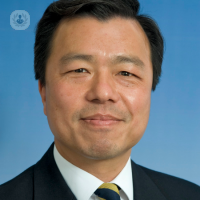The misdiagnosis of chronic kidney disease (CKD)
Escrito por:The diagnostic label of chronic kidney disease (CKD) on an otherwise reasonably healthy individual, particularly of the elderly, can evoke a range of unwarranted emotions and anxiety on the impending doom of needing imminent kidney replacement treatments, in the form of dialysis and transplantation. But what happens if a patient has been misdiagnosed? Kidney specialist Dr Jonathan Kwan explains more…

What are some of the consequences for patients misdiagnosed with CKD?
Erroneous diagnosis of CKD on an individual can lead to untold consequences, both clinical and socio-financial. These could include unnecessary and avoidable non-invasive and invasive investigations on top of the inconvenience of attending repeated clinic visits.
Occupation health declaration may compromise job application for some categories of jobs. Unjust premiums on life and travelling insurance, and failed mortgage applications and fostering and adoption approval are some of the stories one hears from our patients!
How are patients being misdiagnosed with chronic kidney disease?
The estimated glomerular filtration rate (eGFR) is a test used to measure the function of the kidneys. It measures the level of creatinine in the blood and uses the results to calculate a number that reflects how well the kidneys are performing, which is the eGFR. Measuring the creatinine is a milestone event for health professionals to diagnose CKD. This is because of the associated significant morbidities and increased cardiovascular complications if left undiagnosed. However, all of the formulae used has significant limitations and suboptimal accuracy leading to misclassification and over-diagnosis, particularly in the failure to incorporate an age-based approach to the diagnosis and classifications.
In which cases is eGFR unreliable in the diagnosis of CKD?
Although a mean decline in eGFR after age 50 is thought to be at approximately 1 ml/min per year, many exceptions confound this generalisation. Strictly speaking, the eGFR does not apply in extremes of ages (those younger than 18 or individuals over the age of 70) nor in individuals with unstable or rapidly changing creatinine concentrations, as seen in:
- Acute kidney injury (AKI)
- Pregnant women
- Patients with serious co-morbid conditions, such as cancer
- People with extremes in muscle mass and diet
- Amputees, paraplegics, bodybuilders, morbid obese
- Muscle-wasting disease or a neuromuscular disorder
- Those suffering from malnutrition, eating a vegetarian or low-meat diet, or taking creatinine dietary supplements.
In summary
Caution and common sense should be exercised if a doctor is to avoid inflicting patients with unwarranted anxiety, needless referrals and medical evaluations that accompany CKD misdiagnosis. Patients who fall into the listed category above should be extra careful with their diagnosis and seek a second medical opinion if in doubt.



